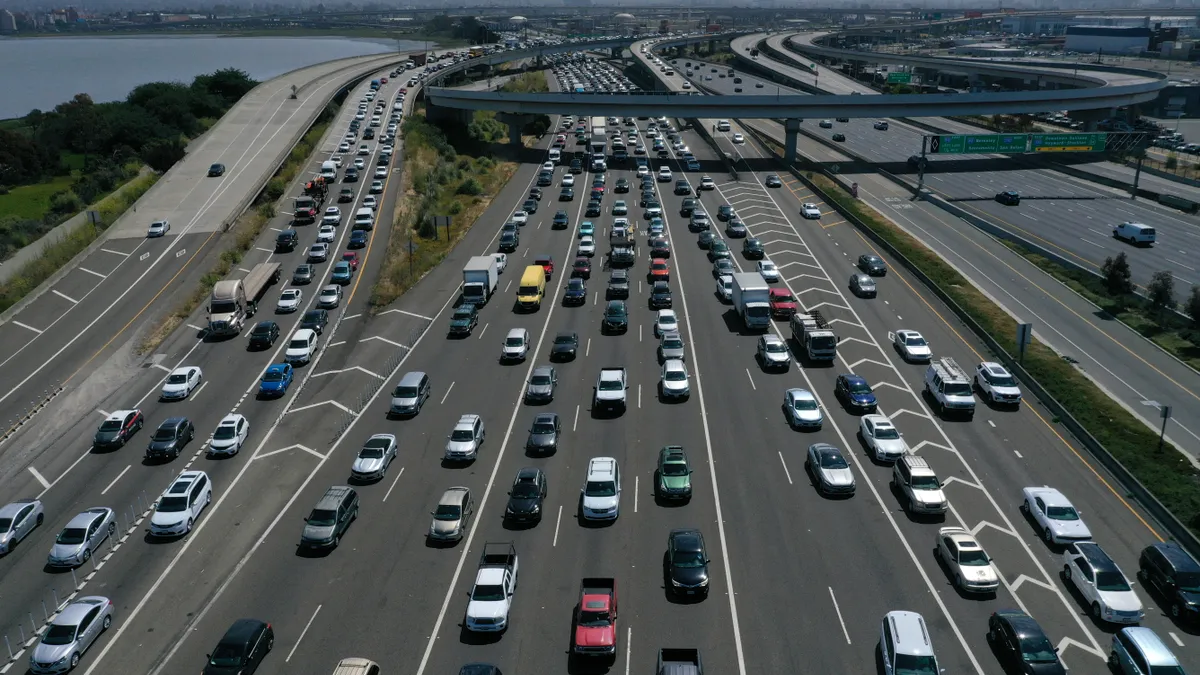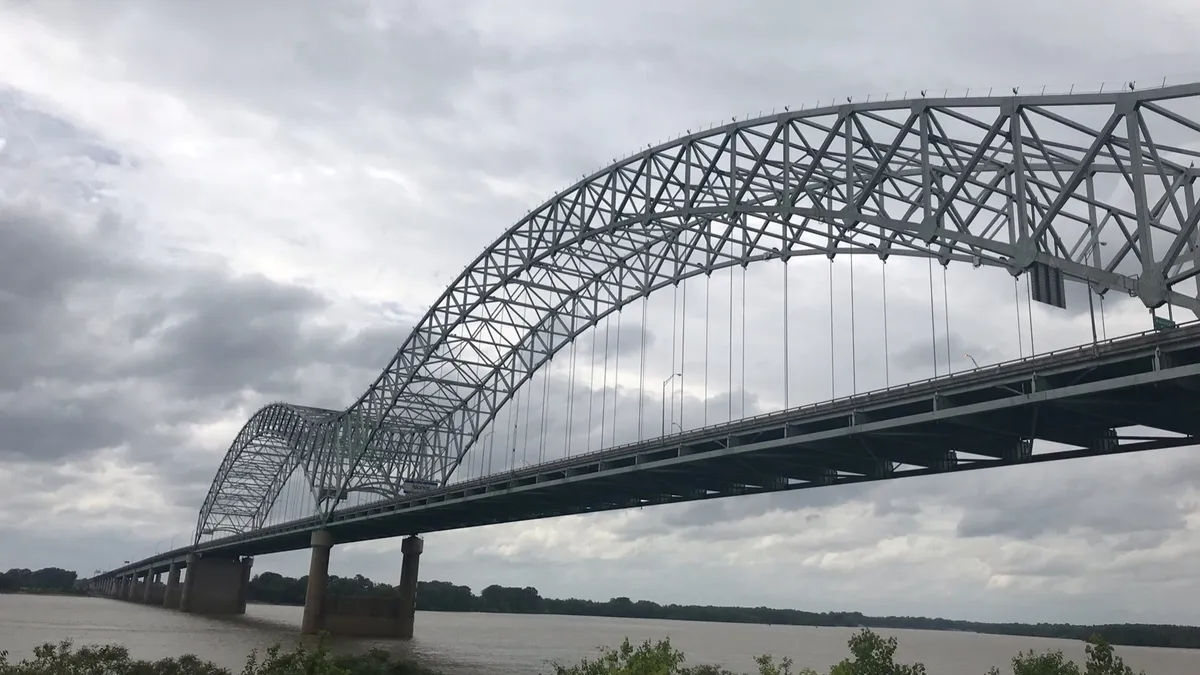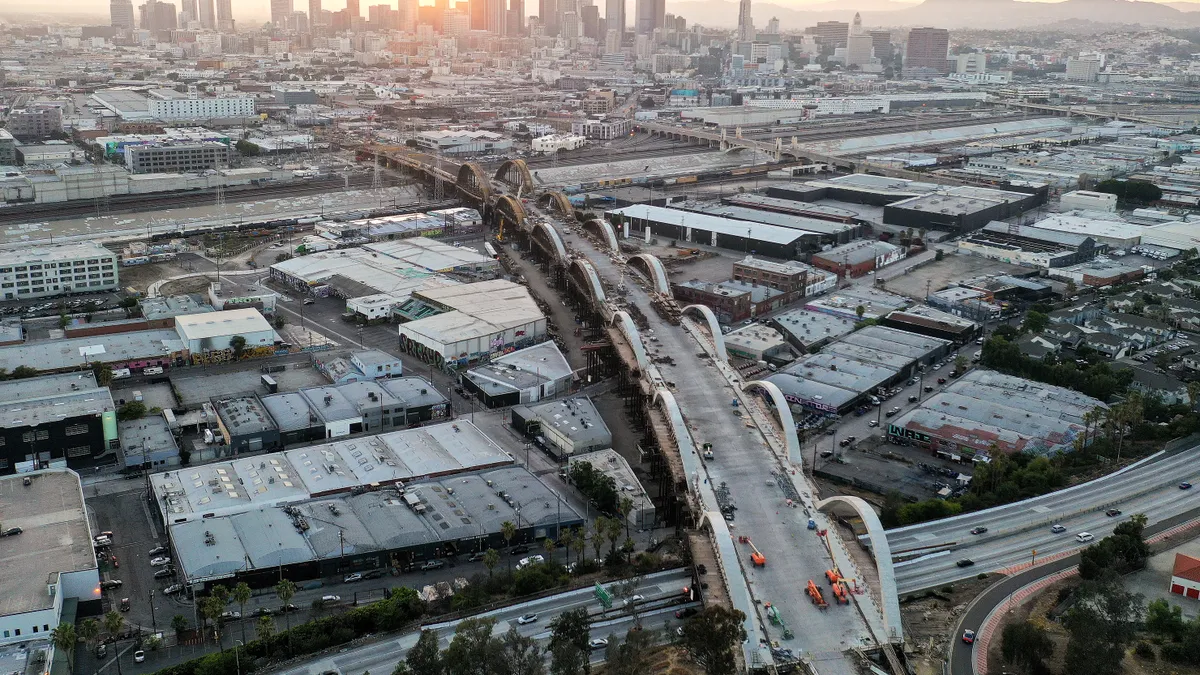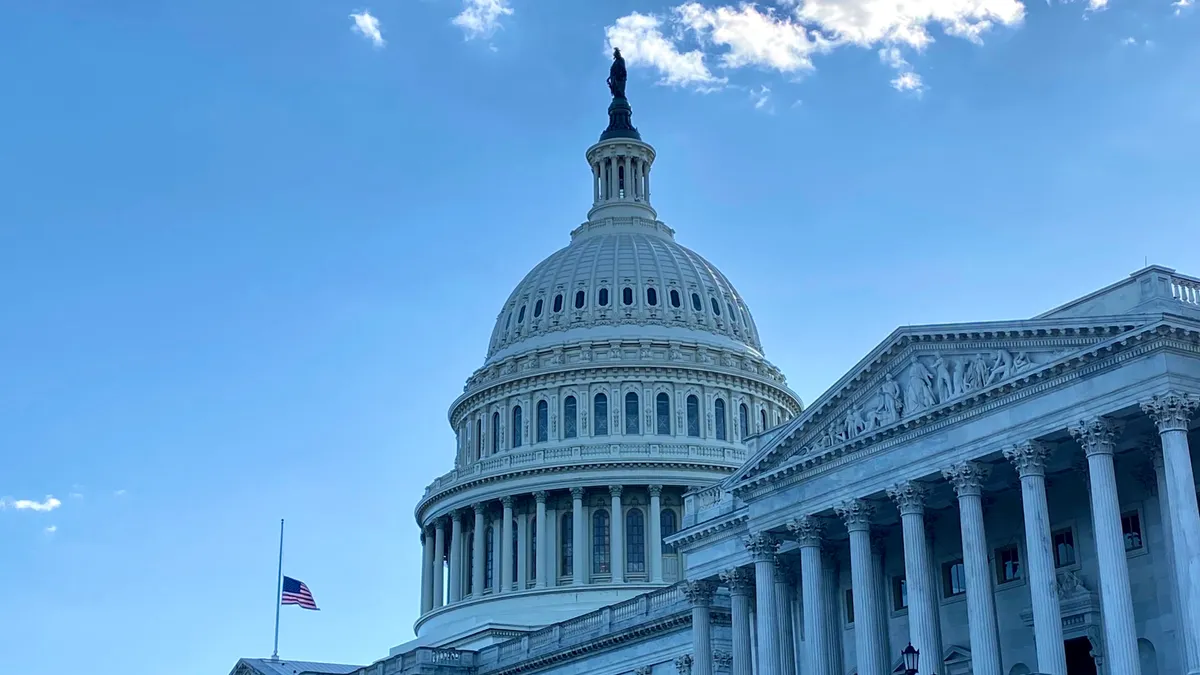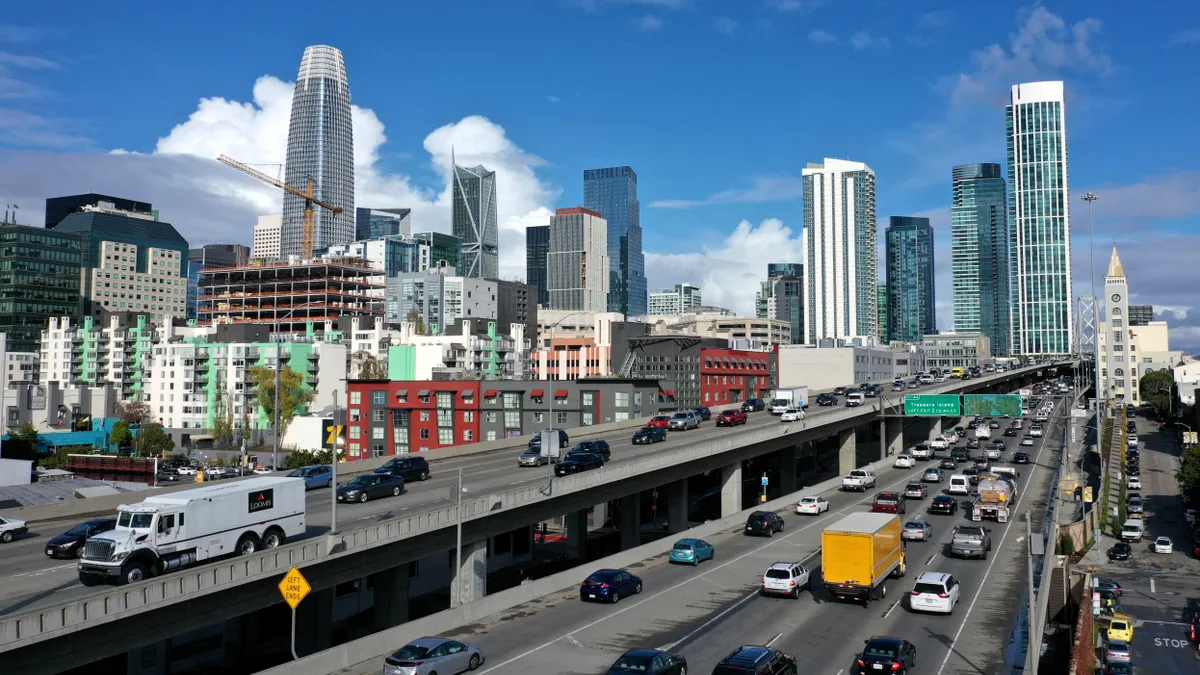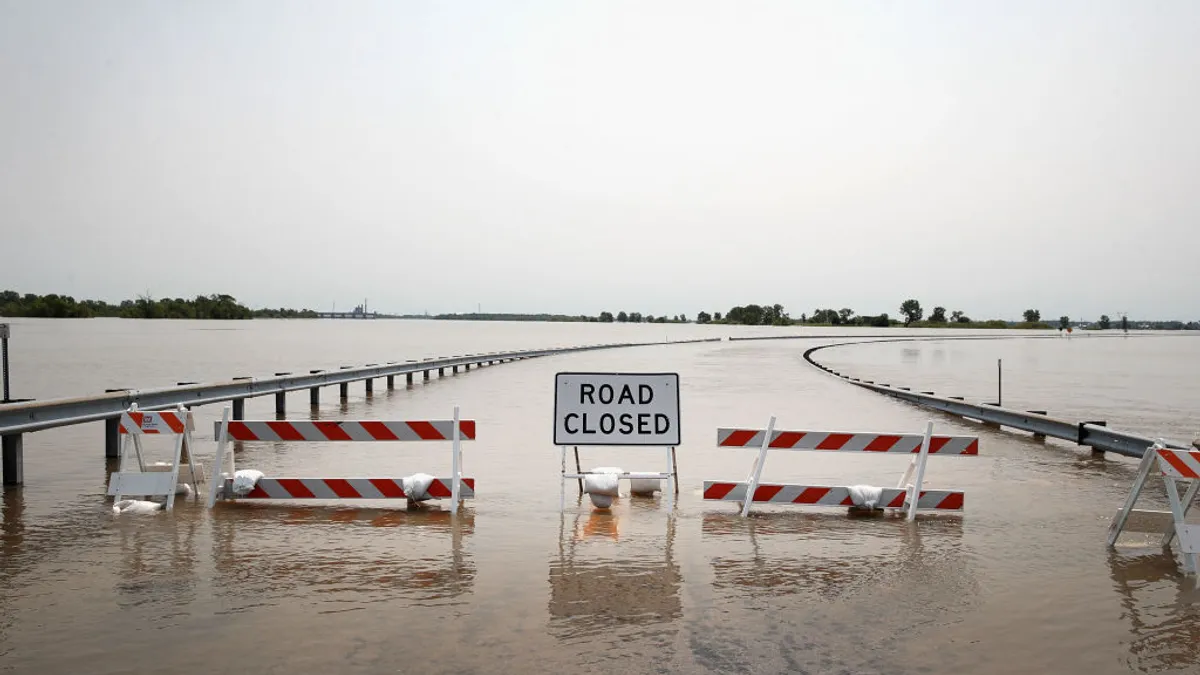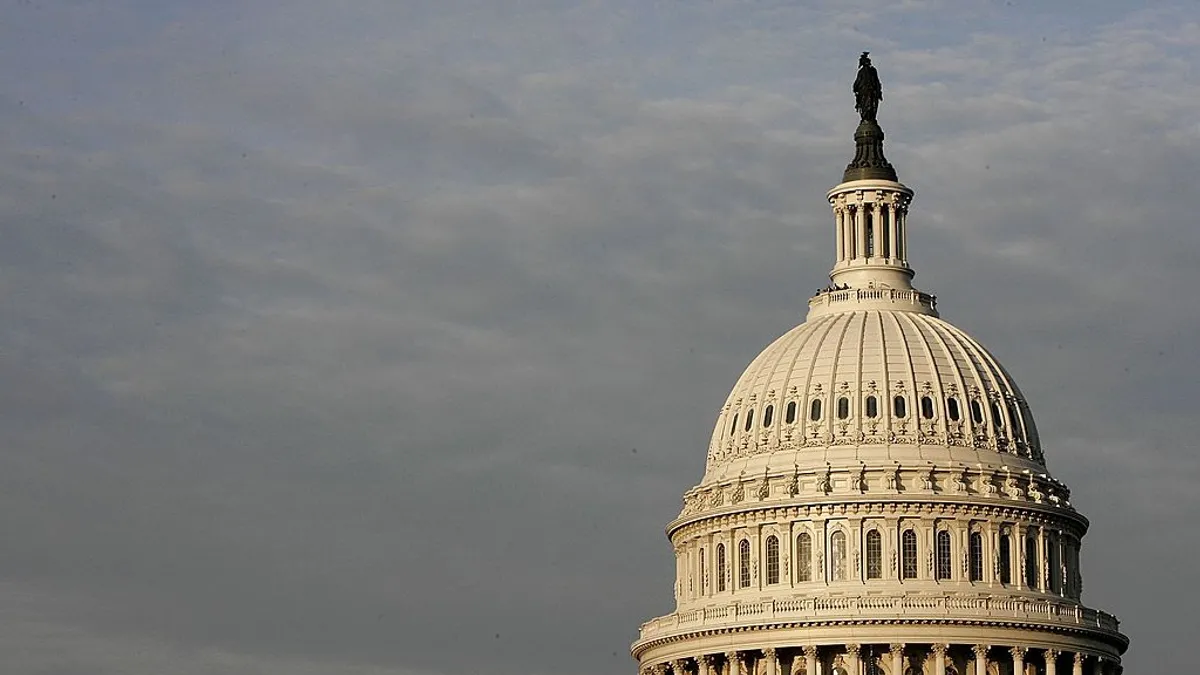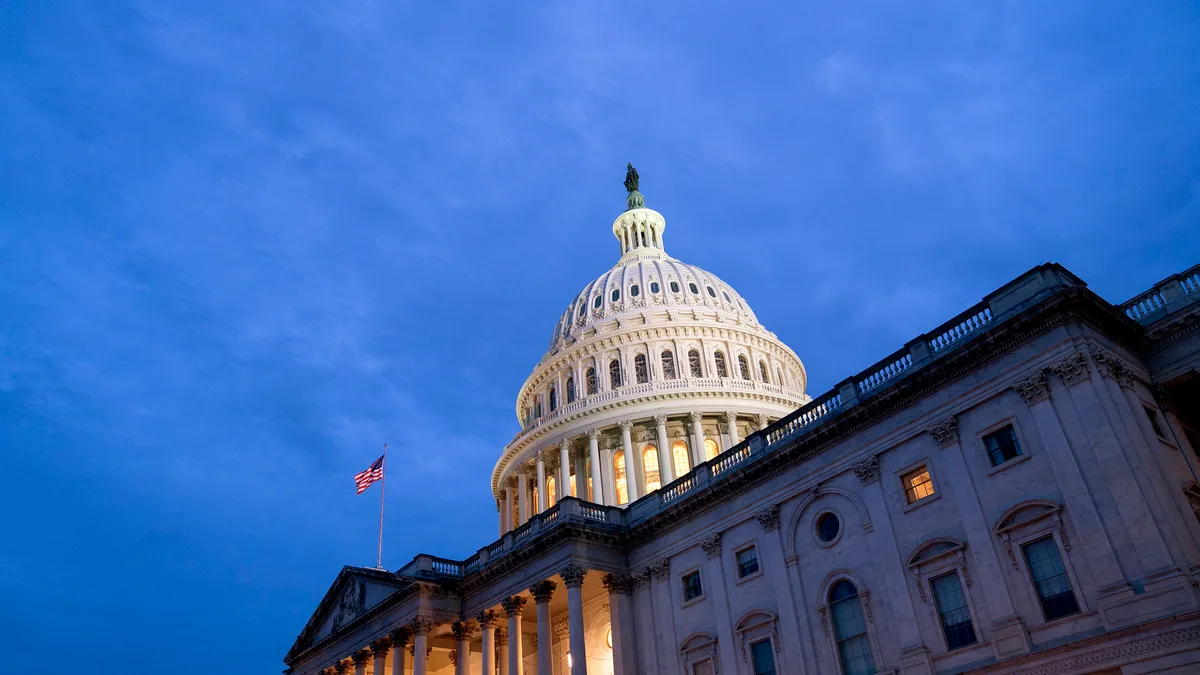Houston could soon be home to a controversial new highway expansion that would cost more than $7 billion and promises to alter the flow of local traffic.
Both federal and local government have pushed back against the North Houston Highway Improvement Project, which would expand a stretch of the roadway recently named one of the deadliest in the U.S.
The Federal Highway Administration told the Texas Department of Transportation (TxDOT) to pause the effort earlier this year due to environmental issues and the project’s potential to displace vulnerable communities. But TxDOT has pressed on, and TxDOT Executive Director Marc Williams told Smart Cities Dive via an email interview that the project will improve air quality and relieve congestion.
The conflict in Houston continues as the U.S. Senate passed the $1 trillion bipartisan infrastructure bill last week. It now awaits action in the House of Representatives. The bill allocates roughly $200 billion in “virtually unrestricted funding” to highways, the National Association of City Transportation Officials (NACTO) said in a statement. That allocation has raised alarm bells among transportation and environmental advocates. Transportation is the largest source of U.S. carbon emissions, which is considered the leading cause of climate change. The United Nations Intergovernmental Panel on Climate Change issued an urgent report last week about the disastrous impacts of climate change.
"The infrastructure bill passed today by the Senate keeps our nation on an unsafe and unsustainable path. It continues to prioritize building the infrastructure that most contributes to the U.S.’s worst-in-class safety record and extraordinarily high climate emissions: new highways," NACTO Executive Director Corinne Kisner and Chair Janette Sadik-Khan said in a statement.
Conflict in Houston
Roadway expansions have increased congestion 144% and resulted in billions of wasted spending, according to a 2020 Transportation for America report. To reduce congestion, governments should improve existing infrastructure instead of building new, and local leaders should consider congestion pricing to help fund the cost of maintenance, the report states.
Proponents of the project in Houston, which would expand, reroute and remove parts of I-45, claim the effort will reduce local congestion. A spokesperson for the Greater Houston Partnership, a business association, told Smart Cities Dive in an email that the project will "reduce congestion, enhance safety and provide options to reduce single occupancy vehicle driving through four managed express lanes for use by transit vehicles, buses, and car pools."
Traffic on the I-45 corridor results in $788 million in congestion costs and 11.9 million gallons of excess fuel used annually, the Greater Houston Partnership spokesperson said, attributing the information to TxDOT. "The wasted fuel produces an estimated 120,209 tons of excess carbon dioxide each year. With the anticipated future population growth, the ‘no-build’ scenario will result in poorer air quality than we are experiencing today," the spokesperson said.
TxDOT’s Williams also said the project will improve safety and mobility, in addition to replacing aging infrastructure that will help alleviate flooding and improve evacuation routes.
Local activists, residents, city, state, county and federal officials, however, have “voiced their dismay” at the project and its claims to improve congestion and air quality, Houston Public Media reports. Houston’s Harris County and the Federal Highway Administration have both tried to stop the expansion over environmental and civil rights concerns. Harris County filed a lawsuit in March asking a federal judge to halt the project until TxDOT completes a new environmental review.
The plan is "simply not acceptable" in its current form, Harris County Attorney Christian D. Menefee told Smart Cities Dive in a statement.
"The proposed plan would displace over a thousand homes — all of which are in traditionally Black and brown communities while uprooting hundreds of businesses, schools, and places of worship," Menefee said. "TxDOT has failed to consider the full impact of this project both from an environmental standpoint and the impact that it would have on the people who live and work in this area. I’m confident by working together we can develop a better approach."
Shortcomings of federal transportation dollars
The conflict in Houston illustrates the challenges that federal transportation funding — like the money from the bipartisan infrastructure deal — can create for cities.
Much of the federal transportation funding will flow to states, not cities. Decisions tied to that funding — like highway widening — can sometimes work against a city’s best interests for transportation investments. That disparity maintains "the power imbalance between states and cities," said Sindhu Bharadwaj, NACTO policy program manager.
There aren't sufficient strings attached to the federal infrastructure dollars to guarantee the money will be spent in a way that aligns with a city's priorities, Bharadwaj said.
"Money alone doesn't fix our transportation challenges, and if we spend more than we already are on widening roads that are already too wide... we could actually end up exacerbating our transportation challenges rather than fixing them," Bharadwaj said.
Despite those concerns, however, the bipartisan deal still represents the "largest federal investment in public transit in history," according to the White House, with $39 billion dedicated to modernizing transit, in addition to improving accessibility and funding existing transit programs for five years as part of the surface transportation reauthorization.
As the bipartisan infrastructure deal moves to the House, "there is still a narrow opportunity to rectify the worst aspects of this enormous legislation, reshaping it to address the looming threat of climate change and stem the unconscionable level of death and injuries on American roads," NACTO’s Kisner and Sadik-Khan said.
Changes like adding a "fix-it-first provision," which would prioritize maintenance and rehabilitation, as well as improving performance measures and investing more in transit, could improve the bill, according to NACTO.
Meanwhile, TxDOT recently ended its public comment period on the I-45 highway expansion. The Texas Transportation Commission will consider whether to include the highway improvement project in its Unified Transportation Program, TxDOT’s 10-year project planning and programming document, during its August commission meeting, according to Williams.
Bharadwaj warned that the bipartisan infrastructure deal as it stands would make it easier for states to build projects like the one in Houston that the Biden administration has opposed. "The problem remains that the majority of the funding can easily go to projects that conflict with the goals that this administration campaigned on," she said.



